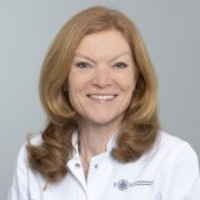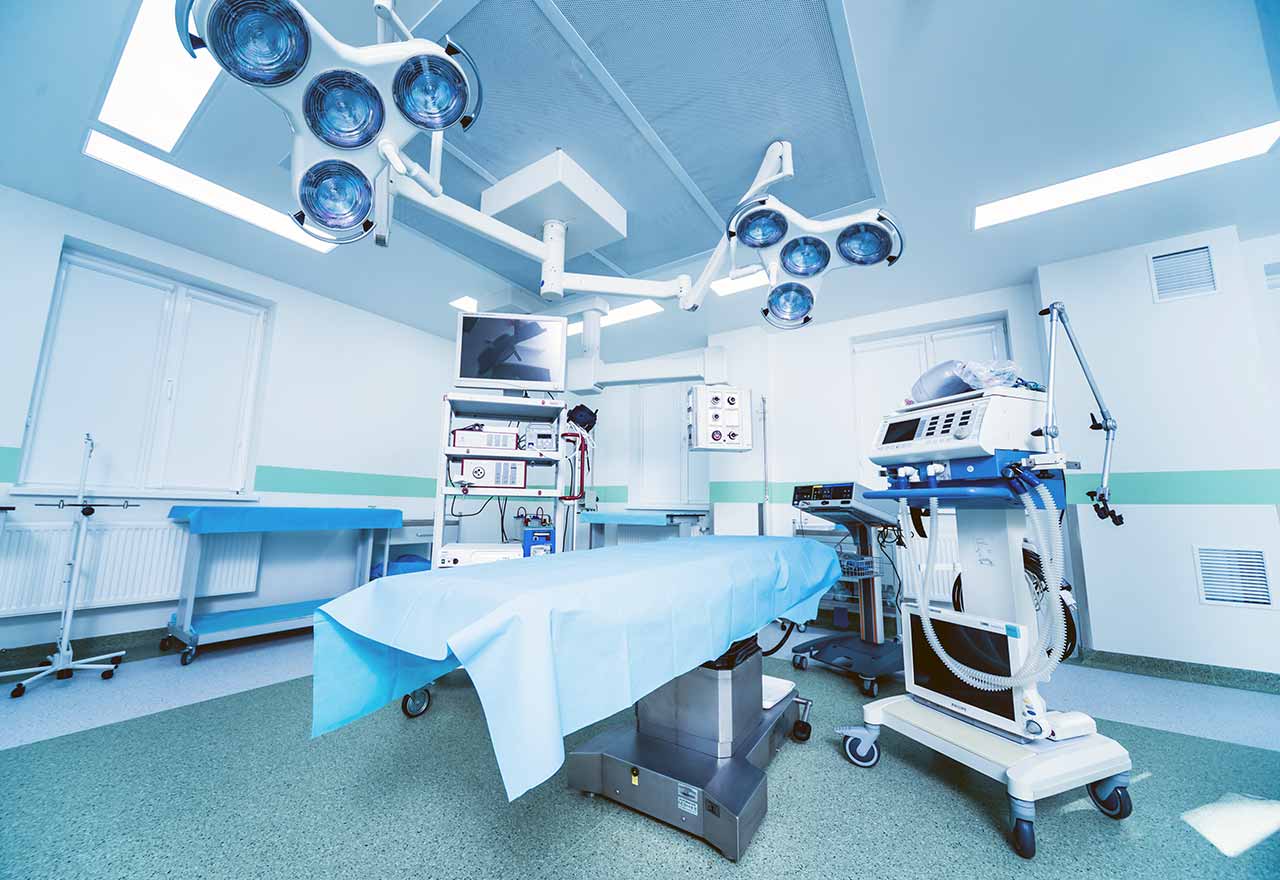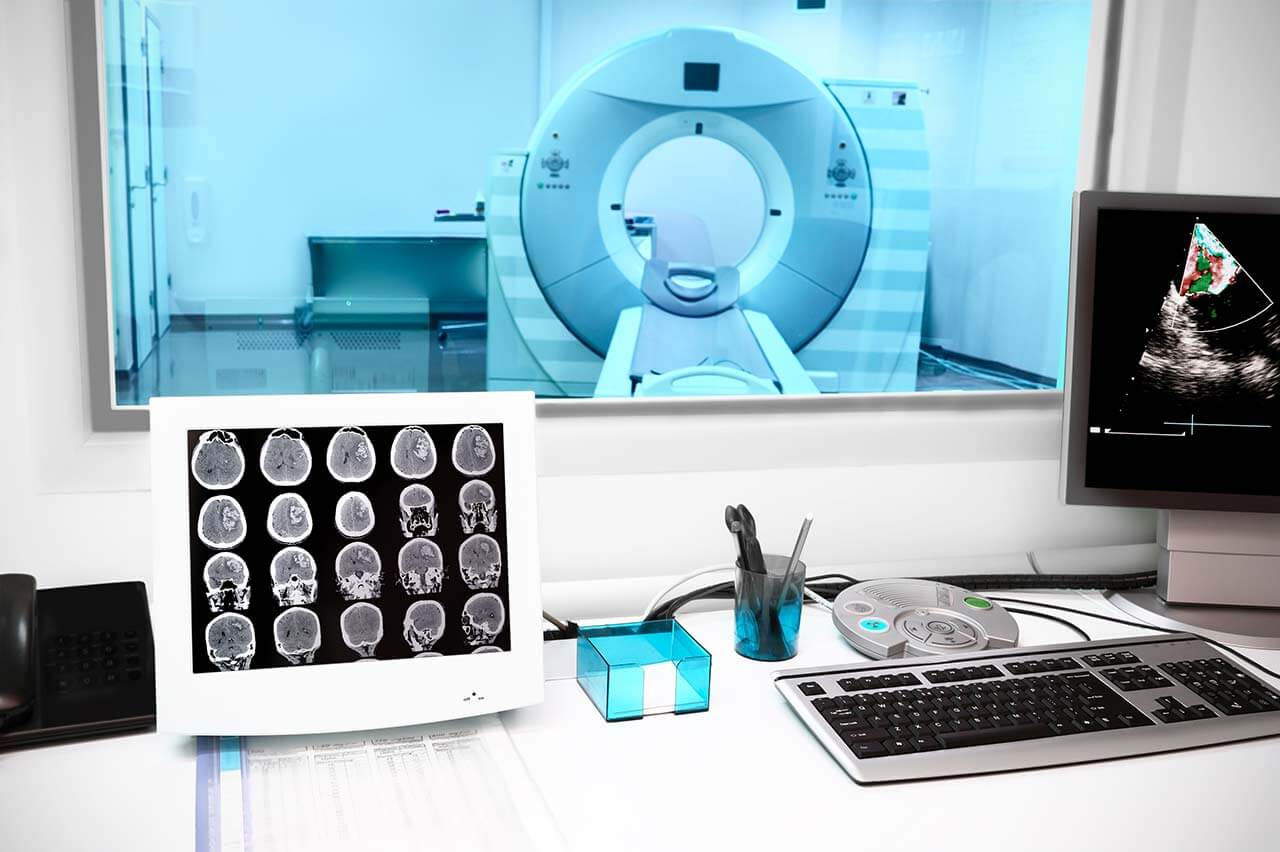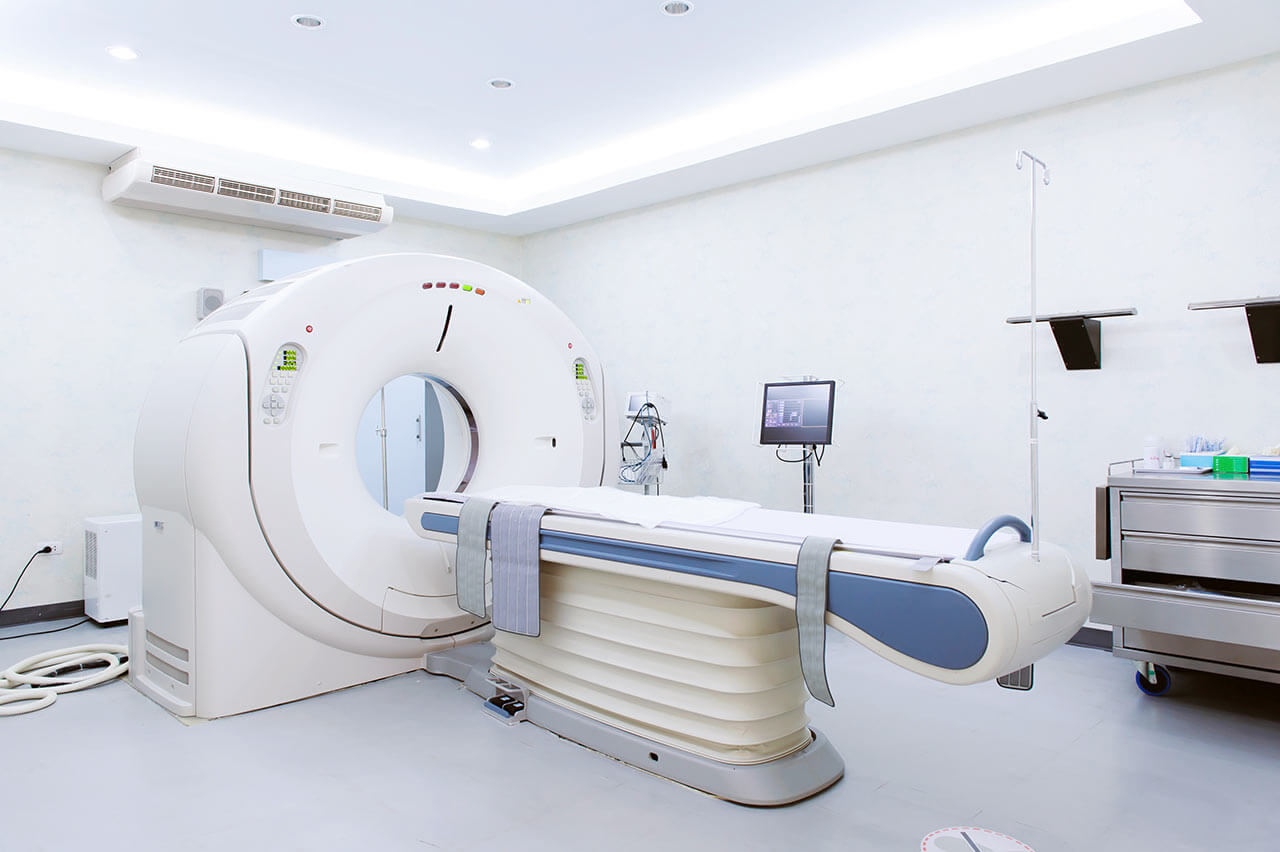
The program includes:
- Initial presentation in the clinic
- clinical history taking
- physical examination
- laboratory tests:
- complete blood count
- general urine analysis
- biochemical analysis of blood
- TSH-basal, fT3, fT4
- tumor markers
- indicators blood coagulation
- CT / MRI of the abdomen
- abdominal ultrasound
- preoperative care
- surgery treatment of сhoriocarcinoma
- histologically and immunohistochemically examination
of the remote tissues - symptomatic treatment
- control examinations
- the cost of essential medicines and materials
- nursing services
- full hospital accommodation
- explanation of future recommendations
Required documents
- Medical records
- MRI/CT scan (not older than 3 months)
- Biopsy results (if available)
Service
You may also book:
 BookingHealth Price from:
BookingHealth Price from:
About the department
According to the reputable Focus magazine, the Department of Gynecology and Mammology at the University Hospital Hamburg-Eppendorf is one of the best medical facilities in Germany for breast cancer treatment!
The department offers a full range of medical services for diseases of the reproductive system and breast pathologies, with a special emphasis on breast cancer. Of particular interest to the department's team is the treatment of uterine, ovarian, and vulvar cancers, breast cancer, uterine fibroids, endometriosis, urinary incontinence, and pelvic organ prolapse. The department enjoys the status of one of the largest and most advanced gynecological centers in Germany with excellent experience in gynecologic oncology. All diagnostic and therapeutic measures comply with modern international standards. The department offers excellent services in gynecologic surgery: almost all procedures are performed using minimally traumatic endoscopic, laparoscopic, and robotic (da Vinci) techniques. The department performs about 1,300 inpatient operations and over 600 outpatient surgical procedures annually. Strict hygiene and safety standards are observed in the operating rooms. Patients of the department are guaranteed personalized medical care using modern methods with proven effectiveness. The Head Physician of the department is Prof. Dr. med. Barbara Schmalfeldt.
The main focus of the daily work of the department's team of gynecologists is the treatment of malignant diseases of the female reproductive system: uterine, cervical, ovarian, and vulvar cancers. Patients with the above-mentioned oncological diseases are admitted to a specialized center certified by the German Cancer Society (DKG). The therapeutic process begins with a personal consultation, followed by a gynecological examination, ultrasound, and colposcopy. If clinically indicated, computed tomography (CT), magnetic resonance imaging (MRI), or positron emission tomography combined with computed tomography (PET/CT) may be required. The obtained data are reviewed by an interdisciplinary tumor board that includes gynecologists, oncologists, radiation therapists, radiologists, and other specialists. An individual treatment plan is developed for each patient, taking into account the specifics of her clinical case. In most cases, the first-line treatment is a surgical procedure to resect the malignancy. It is important to the department's surgeons to provide treatment that is not only effective but also as sparing as possible, so minimally invasive and robotic techniques are used whenever possible. Chemotherapy is often given after surgery; in some cases, chemotherapy may be administered before surgery (neoadjuvant chemotherapy). Patients with gynecological cancers are also offered treatment with targeted therapy and immunotherapy.
The department's gynecologists are deservedly proud of their extensive experience in the treatment of benign gynecological diseases. The most common patients in the medical facility are those with endometriosis, ovarian cysts, and uterine fibroids. Endometriosis is a pathological proliferation of endometrial cells outside the uterus. The pathology is benign, but without timely treatment, it may potentially lead to the development of cancer. Women with early stages of endometriosis are prescribed drug treatment with hormonal drugs, painkillers, and anti-inflammatory drugs. If the gynecologists of the department detect multiple deep foci of endometriosis, surgical treatment is required. The department's specialists perform minimally invasive surgery for endometriosis. Ovarian cysts are benign neoplasms located inside or on the surface of the ovary. Both conservative and surgical methods can be used in the treatment of ovarian cysts, and the choice of treatment tactics depends on the type of cyst, its size, duration of the disease, clinical manifestations, age, and general health of the patient. Conservative treatment is based on the use of hormonal drugs. If surgery is indicated, ovarian cystectomy, the surgical removal of the cystic neoplasm while preserving healthy ovarian tissue, is preferred whenever possible. In complex clinical situations, the department's doctors perform ovarian wedge resection. For the treatment of uterine fibroids (benign tumors that occur in the muscle layer), specialists offer drug therapy and all available surgical procedures in this area such as laparoscopic myomectomy, hysteroscopic myomectomy, hysterectomy, or uterine artery embolization.
An integral part of the clinical practice of the department's doctors is the diagnosis and treatment of breast diseases. In this context, the treatment of breast cancer is of particular interest. Patients with benign and malignant pathologies of the mammary gland receive medical care in a specialized Breast Center, which is certified by ISO 9001:2000, the German Cancer Society (DKG), and the German Society for Senology (DGS). More than 500 women with breast cancer are treated at the center each year. Specialists offer all the possibilities of modern surgical treatment for breast cancer, ranging from organ preservation breast surgery to reconstructive plastic surgery with silicone implants and lipofilling techniques. Surgery is complemented by effective conservative therapies, such as chemotherapy, targeted therapy, antibody therapy, hormone therapy, immunotherapy, and radiation therapy.
The main areas of clinical activity of the department are as follows:
- Gynecology
- Diagnostics and treatment of malignant diseases of the female reproductive system
- Diagnostics and treatment of uterine cancer
- Diagnostics and treatment of cervical cancer
- Diagnostics and treatment of ovarian cancer
- Diagnostics and treatment of vulvar cancer
- Diagnostics and treatment of benign diseases of the female reproductive system
- Diagnostics and treatment of endometriosis
- Diagnostics and treatment of ovarian cysts
- Diagnostics and treatment of uterine fibroids
- Diagnostics and treatment of pelvic organ prolapse
- Diagnostics and treatment of urinary incontinence
- Diagnostics and treatment of functional disorders of the pelvic organs
- Diagnostics and treatment of hormone imbalances caused by gynecological diseases
- Diagnostics and treatment of irregular periods
- Diagnostics and treatment of menopause
- Diagnostics and treatment of polycystic ovary syndrome
- Diagnostics and treatment of infertility caused by gynecological problems
- Diagnostics and treatment of malignant diseases of the female reproductive system
- Mammology
- Diagnostics and treatment of breast cancer
- Diagnostics and treatment of benign breast diseases
- Diagnostics and treatment of other diseases
The range of therapeutic services provided by the department includes the following:
- Conservative treatment
- Drug therapy for benign gynecological diseases
- Hormone therapy
- Symptomatic therapy
- Drug therapy for malignant gynecological diseases
- Chemotherapy
- Targeted therapy
- Antibody therapy
- Hormone therapy
- Drug therapy for benign gynecological diseases
- Surgical treatment
- Hysteroscopy
- Minimally invasive surgery
- da Vinci robotic surgery for cervical cancer, endometrial cancer, uterine fibroids, and endometriosis
- Other medical services
Curriculum vitae
Higher Education and Professional Career
- 1984 - 1986 Medical studies, University of Regensburg.
- 1986 - 1991 Medical studies, Technical University of Munich.
- 1991 Thesis defense, Technical University of Munich. Subject: "Pressure parameters in the right and left chambers of the heart in the presence of tachyarrhythmias".
- 06.1991 - 12.1991 Internship, Department of Internal Medicine I, University Hospital Rechts der Isar Munich.
- 01.1992 - 04.1997 Residency, Department of Gynecology and Obstetrics, University Hospital Rechts der Isar Munich.
- 1997 Board certification in Gynecology and Obstetrics.
- 1997 - 2001 Senior Physician, Department of Gynecology and Obstetrics, University Hospital Rechts der Isar Munich.
- 16.02.2000 Habilitation and Venia legendi in Gynecology and Obstetrics, Technical University of Munich. Subject: "Factors promoting invasion and proliferation during the progression of malignant ovarian tumors".
- 2003 - 2015 C3 Professor for Gynecological Oncology, Technical University of Munich.
- 2001 - 2015 Consultant and Deputy Head Physician, Department of Gynecology and Obstetrics, University Hospital Rechts der Isar Munich.
- 2009 - 2015 Head of the Center for Gynecologic Oncology, University Hospital Rechts der Isar Munich.
- 2013 - 2015 Executive Director, Roman-Herzog Cancer Center, University Hospital Rechts der Isar Munich.
- Since 01.07.2015 Head Physician, Department of Gynecology and Mammology, University Hospital Hamburg-Eppendorf.
Additional Qualifications
- 2001 Optional advanced training in Special Gynecological Surgery.
- 2002 Optional advanced training in Special Obstetric Services and Prenatal Medicine.
- 2007 Specialization in Gynecologic Oncology.
- 2012 Additional qualification in Specialized Genetic Counseling.
- 2012 Certification in Minimally Invasive Surgery, Gynecologic Endoscopy Working Group.
Clinical Interests
- Conservative and surgical treatment of benign and malignant diseases of the uterus, ovaries, vulva, and mammary glands.
- Minimally invasive surgery.
- Treatment of hereditary breast and ovarian cancer.
Research Interests
- Phase III trials for the development of new drugs in the field of gynecological oncology and breast cancer.
- Identification of biomarkers for targeted therapy in gynecological cancers.
Positions in Scientific Societies
- 2001 - 2015 Head of the Project Group "Malignant ovarian tumors" at the Cancer Center Munich.
- 2003 - 2008 Spokesperson and Board Member of the Commission (OVAR) of the Working Group on Gynecological Oncology.
- Since 2012 Deputy Chairman of the Working Group on Gynecological Oncology.
Prizes, Awards, and Honors
- 1987 - 1991 Scholarship of the German Academic Scholarship Foundation.
- 1996 Scientific Prize from the Bavarian Society of Obstetrics and Gynecology.
- 1997 - 2000 Grant from the German Cancer Aid (Deutsche Krebshilfe) for experimental and clinical trials on the regulation of matrix metalloproteinases (MMP-2/9) in ovarian cancer (No. 10-1197-Le).
- 10.2009 Award from the Cancer Center Munich.
- 2020 Teacher of the Year, University of Hamburg.
Memberships in Professional Societies
- German Society for Gynecology and Obstetrics (DGGG), Board Member.
- North German Society for Gynecology and Obstetrics (NGGG).
- North Eastern German Society for Gynecological Oncology (NOGGO).
- Bavarian Society for Obstetrics and Gynecology (BGGF).
- German Cancer Society (DKG).
- Society of Obstetrics of Hamburg (GGH).
- German Gynecologic Endoscopy Working Group (AGE).
- German Gynecological Oncology Working Group (AGO).
- German Society for Senology (DGS).
- European Society of Gynecological Oncology (ESGO).
- Professional Association of Gynecologists in Germany (BVF).
Photo of the doctor: (c) Universitätsklinikum Hamburg-Eppendorf (UKE)
About hospital
According to the Focus magazine, the University Hospital Hamburg-Eppendorf is one of the top ten hospitals in Germany!
Since its foundation in 1889, the hospital has taken a leading position in the European medical arena, which it still holds today. A highly competent medical team of more than 15,300 employees takes care of the health of patients. Approximately 2,900 of them are physicians and researchers, and more than 3,400 work as nurses and therapists. The hospital has 1,738 beds for inpatient treatment, and many diagnostic and therapeutic services are provided on an outpatient basis. A solid foundation for successful clinical practice in the medical complex is formed by a combination of research achievements with state-of-the-art equipment and the highest professionalism of doctors. In addition, the hospital has a modern and extremely comfortable infrastructure. The most important value for every employee of the University Hospital Hamburg-Eppendorf is the health and well-being of every patient.
The medical facility was the first university hospital in Europe to implement an electronic system for storing patient medical reports. As a result, all diagnostic and treatment protocols are stored electronically. In 2011, the hospital was certified as the first fully digital hospital in Europe.
The hospital represents all areas of modern medicine. The doctors of the healthcare facility have a wealth of theoretical knowledge and vast clinical experience, which allows them to easily cope with the treatment of both common and extremely rare, complex clinical cases. About 550,000 patients are treated here each year, over 450,000 of whom receive outpatient medical care.
An important part of the work of the University Hospital Hamburg-Eppendorf is research activities aimed at developing innovative diagnostic and treatment methods. The main areas of research of the hospital include neurobiology, oncology, cardiovascular research, and research on infectious and inflammatory diseases. Special attention is also given to research in molecular imaging and skeletal biology.
The hospital is distinguished by its first-class level of medical care, which is confirmed by numerous quality certificates of European and international standards: DIN EN IS0 9001 certificate, certificates of the German Cancer Society (DKG) in the treatment of breast cancer, colon cancer, gynecological cancer, prostate cancer, and other oncological diseases, certificate of the German Cardiac Society (DGK) in the treatment of acute coronary syndrome, certificate of the German Spine Society (DWG), and others.
Photo: (с) depositphotos
Accommodation in hospital
Patients rooms
The patients of the University Hospital Hamburg-Eppendorf stay in comfortable single and double bright rooms with a modern design. Each patient room has an ensuite bathroom with a shower and a toilet. The standard patient room furnishings include an automatically adjustable bed with an orthopedic mattress, a bedside table, a wardrobe, a table and chairs for receiving visitors, a telephone, a radio, and a TV. Wi-Fi access is available in patient rooms and throughout the hospital.
If desired, patients can stay in single enhanced-comfort rooms. These rooms are more spacious and are equipped with upholstered furniture, a safe, and a mini-fridge.
Meals and Menus
The hospital offers three meals a day: breakfast, lunch, and dinner. Breakfast and dinner are served in the form of buffets, and for lunch you can choose from several set menus – in total, more than 20 dishes are served for lunch, including vegetarian ones.
If, for some reason, you cannot eat all of the foods, you will be offered an individual menu. Please inform the medical staff about your dietary preferences prior to the treatment.
Further details
Standard rooms include:
![]() Toilet
Toilet
![]() Shower
Shower
![]() Wi-Fi
Wi-Fi
![]() TV
TV
Religion
Religious services are available upon request.
Accompanying person
During the inpatient program, an accompanying person may stay with you in a patient room or hotel of your choice.
Hospital accommodation
During the outpatient program, you may stay in a hotel at the hospital.
Hotel
During the outpatient program, you may stay in a hotel of your choice. Managers will help you choose the most suitable options.
The hospital offers a full range of laboratory tests (general, hormonal, tests for infections, antibodies, tumor markers, etc.), genetic tests, various modifications of ultrasound scans, CT scans, MRI and PET / CT, angiography, myelography, biopsy and other examinations. Treatment with medications, endoscopic and robotic operations, stereotaxic interventions is carried out here, modern types of radiation therapy are also used. The hospital offers patients all the necessary therapeutic techniques.
- Coiling and clipping of aneurysms of different localizations
- Transjugular intrahepatic portosystemic shunting in patients with portal hypertension
- Minimally invasive surgeries (da Vinci)
- Removal and reconstruction of mammary glands
- Hyperthermic intraperitoneal chemotherapy (HIPEC)
These are arteriovenous malformations and angiomas, vascular aneurysms, pathologies of the mammary glands, pelvic organ prolapse, urinary incontinence, malignant tumors of various localizations (area of special attention is treatment of intestinal cancer), pathologies of liver and pancreas, cataracts and rare ophthalmic pathologies (aphakia, aniridia ), infertility and other diseases.
- Interventional neuroradiology
- Mammology
- Oncology
- Gastroenterology
- Surgery
Over 2,900 highly qualified physicians and researchers work at the hospital.





